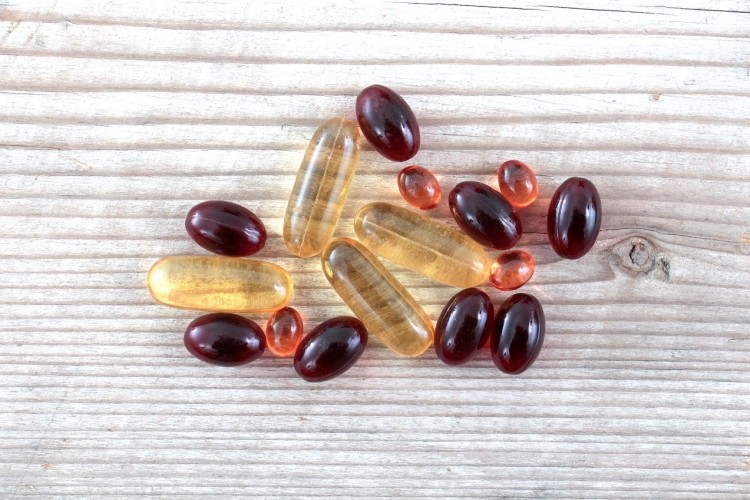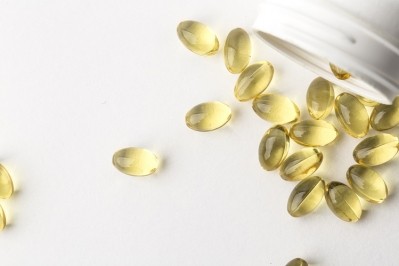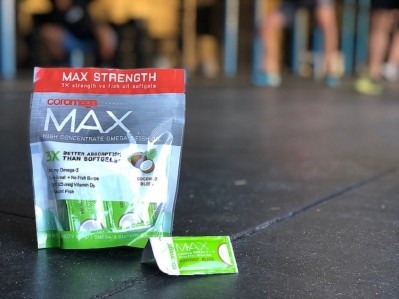Guest article
EPA and DHA Omega-3s: Reflections on 2018

2018 was a year characterized by a surge in the body of science supporting EPA and DHA omega-3s. The publication of three large-scale studies effectively doubled the population of subjects studied for omega-3 outcomes connected to heart health.
Additionally, new technical topics began to appear on the radar of the industry, with developments in contaminant regulations and a new conversation around micro- and nanoplastics.
The year was also marked by challenges on the regulatory front, a lawsuit and a consumer-facing book on omega-3s by journalist Paul Greenberg.
Ascend and VITAL and Reduce-It, Oh My
In the span of less than four months, the body of science supporting EPA and DHA’s impact on heart health gained more than 50,000 subjects, doubling the population size of people assessed for cardiovascular outcomes.
The first trial, Ascend, was published in August in the New England Journal of Medicine. The study showed that there were fewer vascular deaths in the EPA/DHA group than in the placebo group as well as a non-statistically significant 21% risk reduction for coronary death.
Secondly, Amarin's Reduction of Cardiovascular Events with EPA Intervention Trial (REDUCE-IT) was published on November 10th; topline results were released at the end of September. REDUCE-IT results demonstrated a statistically significant relative risk reduction of 25% in the first occurrence of major adverse cardiovascular events in individuals provided 4 grams/day of Vascepa (EPA) compared to those receiving placebo, in 8179 statin-treated adults with elevated cardiovascular risk.
Lastly, VITAL investigated whether taking daily vitamin D3 (2000 IU) and/or EPA+DHA (omega-3-acid ethyl esters) (Omacor, 1 gram) reduced the risk of major cardiovascular disease events. This was the first large-scale primary prevention trial — subjects included 25,871 men and women — looking at heart disease as an outcome.
VITAL found that omega-3s reduced the risk of total MI (myocardial infarction or heart attack) by a statistically significant 28% and the risk of total coronary heart disease (CHD) by a statistically significant 17%. There were additional findings supporting a larger effect in African Americans and those with low fish intake, but these results need further investigation.
As a result of these three studies almost doubling the number of participants studied, we now have much more precise estimates on risk reduction outcomes and the key takeaway is, we can feel confident saying omega-3s reduce the risk of heart attacks, the risk of coronary heart disease and the risk of cardiac death. GOED has completed a full analysis of the data that we will be publishing in a peer-reviewed journal next year.
This is not to say that 2018 was all rosy on the scientific publication front. A solidly negative Cochrane Review was published in July by Dr. Lee Hooper as a joint publication of Cochrane and the World Health Organization (WHO). The study in question was a systematic review of RCT’s (randomized controlled trials) and categorically stated that there was no supporting evidence for omega-3s in cardiovascular outcomes.
GOED feels strongly that the review has several serious flaws and does not consider the totality of the available scientific evidence, ignores multiple lines of evidence, uses an unusual definition of coronary heart disease (CHD) and the conclusions are improperly generalized to the general population. As we go to press, we are awaiting the publication of WHO guidelines based on this review; GOED expects them to be similarly negative.
Positive Science on Prenatal Outcome
On the positive science front for another outcome, an updated Cochrane Review of 70 randomized controlled trials (RCTs), was published in November, and the results are noteworthy.
The analysis, involving almost 20,000 women, reported that supplementation with omega-3 long-chain polyunsaturated fatty acids (LCPUFA) during pregnancy reduced the risk of having a preterm baby before 37 weeks by 11% and an early preterm baby, before 34 weeks, by 42%.
Of particular importance is the fact that the study authors specifically said, “More studies comparing omega-3 LCPUFA and placebo (to establish causality in relation to preterm birth) are not needed at this stage. A further 23 ongoing trials are still to report on over 5000 women, so no more RCTs are needed that compare omega-3 LCPUFA against placebo or no intervention. ”
Additionally, the authors suggested that pregnant women should take an omega-3 supplement daily with at least 500 mg DHA and have provided guidance for health care professionals.
Focus on Contaminants
Several topics on the technical agenda are also worth mentioning. In March, the European Commission (EC) set a maximum level for glycidyl esters in refined vegetable oils for the final consumer or for use as an ingredient in food, and a maximum level for 3-MCPD is in the making. While these limits do not apply to EPA/DHA omega-3 oils, the European Commission and UK authorities are also working on maximum limits for these process contaminants in fish oils and both have requested consumer and industry organizations to provide data on the levels of these process contaminants in fish oils.
GOED has been participating in an Electronic Working Group (EWG) of the Codex Committee on Contaminants in Food (CCCF), which is developing a Code of Practice (CoP) for the mitigation of 3-MCPD and glycidyl-esters process contaminants in refined oils. Based on member input, GOED has provided input into the CoP over the past 18 months, in particular to inform and guide that this CoP should also encompass refined fish oils. The next draft version of the Code of Practice (CoP) is expected on December 18th.
In other technical news, GOED has updated its maximum limit on lead in the GOED Voluntary Monograph, from 0.1 to 0,05 mg/kg. The limit only applies to refined oils that fall within the scope of the GOED Monograph and is valid from March 1, 2019. The new limit does not apply to products already on the market at the time the new limit was adopted, and all products should meet the limit by March 1, 2020.
Finally, GOED’s Technical Committee has just developed an Industry Advisory on micro- and nanoplastic particle contamination in fish oils. A key takeaway is that, given the extensive application of filtration processes that take place during fish oil refining processing, microplastic particles with a diameter larger than 0.5-1 micrometer are highly unlikely to be present in refined fish oils and other EPA/DHA oils used for consumer finished products. Undoubtedly, there is much more to be learned on this topic.
A Postponement for a Codex NRV and Still No Word on GOED’s Blood Pressure Health Claim Petition
In other news during 2018, a decision was rendered on a potential NRV (Nutrient Reference Value) under Codex, a global standards-setting body. GOED has been working with others for several years on getting a Codex NRV adopted, as this standard could be used as a model of an intake recommendation by many countries around the world. However, during the process this year leading up to the Codex meeting, which took place at the end of November, it became clear that the proposal did not have the support needed to garner enough votes.
While GOED believes that the science supports the establishment of an NRV, the process is more political than we previously understood and we recommended a postponement of further discussion, a decision that was adopted. GOED will now assess next steps in educating governments around the world about the importance of EPA and DHA intake for public health.
Also on regulatory front, the US FDA has asked for its 16th extension in reviewing GOED’s petition for a blood pressure qualified health claim in the United States, originally submitted on 8 August 2014. Should the FDA deliver its decision on 1 February 2019, the review will have taken 1,638 days, a record that far exceeds the review of any other QHC petition to date. GOED has been in touch with FDA but has not gotten a solid answer on the reason for the delay.
A Book, A Lawsuit and a New Website for Doctors
2018 also saw the publication of The Omega-3 Principle by Paul Greenberg, a well-known journalist who did extensive research into the omega-3 industry. The book was balanced overall, although there were negative media headlines and coverage as a result.
On the legal front, pharmaceutical company Amarin, manufacturer of Vascepa, filed two lawsuits in October against supplement manufacturers it claimed were illegally capitalizing on the Reduce-It results to market their supplement products, and sent a letter to GOED reminding GOED members of the same. GOED issued an Industry Advisory reminding supplement companies of current FDA regulations regarding structure-function claims and linking to studies discussing disease.
As we went to press, the appeal by Amarin on its ITC case filed in September 2017 remained open, with no decision yet by the US Court of Appeals.
Lastly, in 2018 GOED began a healthcare practitioner education program. Based on consumer research around the world that shows consumers look to healthcare practitioners first for health and wellness advice, GOED plans to use this influencer audience to educate more consumers about the benefits of omega-3s. The program targets nurse practitioners and physician’s assistants as well as pharmacists, and includes digital media editorial outreach, a Continuing Education program and participation in HCP conference education.
Tied into this is the launch of a new website for doctors at www.fatsoflife.com. The site is fully referenced and provides scientific corroboration about the benefits of EPA and DHA omega-3s for heart health, brain health, eye health and prenatal and maternal health.
NutraIngredients, in conjunction with GOED, will be holding its first ever omega-3 event in Singapore in February 2019, featuring renowned speakers from CSIRO, A*STAR, Koure, GOED and more.




























